
Top 10 Most Popular Alternatives to YouTube in China 2025
With over 2 billion active users per month, YouTube is the world’s largest video hosting platform, the second most popular social media platform, and the second largest search engine. Most people start and end their day with a YouTube video; it could be for any purpose meditation, recreational activity, or to gain knowledge. On average, each user spends 11 minutes 24 seconds per day on the site. But if you try to access and watch YouTube in China, though, you will find that this app/website is blocked. Luckily, there are plenty of alternatives to YouTube in China. Although they’re not exactly the same as YouTube, they are still worth checking out if you want to share and watch videos. The following are top 10 most popular alternatives to YouTube in China 2025, let's check out now!
YouTube Review
YouTube was founded on February 14, 2005, by Chad Hurley, Steve Chen, and David Karim. It is a true streaming giant that features a diverse range of all kinds of contents which includes music, drama, education, how-to hacks, and many more. Whether you’re looking for a specific video to watch or you’re just browsing to find some fun new content, YouTube is going to be your first port of call. Videos can be hosted in high quality, captions and subtitles are supported, viewers and creators can both make playlist, and the potential audience is huge. And currently, it has over two billion monthly active users.
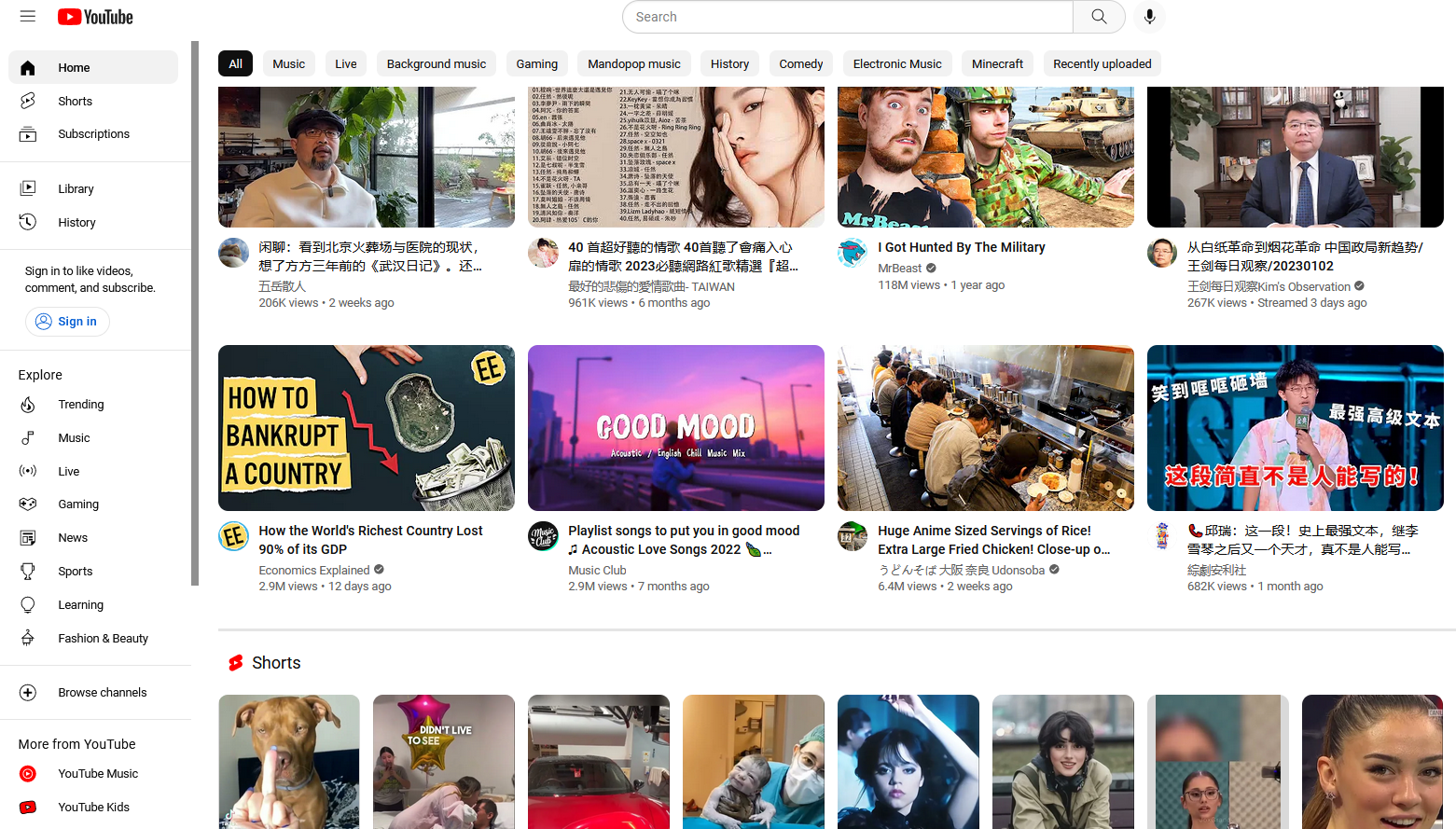
Youtube's Chinese equivalents were born on hosting ripped content from overseas, such as popular western TV series and movies, and grew from humble bootlegging websites into fully fledged internet companies. Most content nowadays is licensed, and many of the popular sites are self-producing local shows. Of course, there’s still the regular uploads of daily life and crazy antics from Chinese netizens, news bulletins, documentary, opinion, DIY videos and everything you could imagine.
Top 10 Most Popular Alternatives to YouTube in China 2025
1. Youku
Launched: 2006
Founders: Victor Koo
Headquarter: Beijing, China
After the ban on YouTube in 2009, Youku took on the role of Chinese YouTube. This video platform is now property of Alibaba and has an attractive base of 500 million monthly active users that view over 800 million videos daily. In 2012 it merged its major competitor Tudou (www.tudou.com) and became the largest Chinese video hosting and sharing site.The website originally focused on user-uploaded content but has more recently moved to more professional uploads that come from numerous sources including television and film companies. From movie series to sports documentaries, you will find everything here.
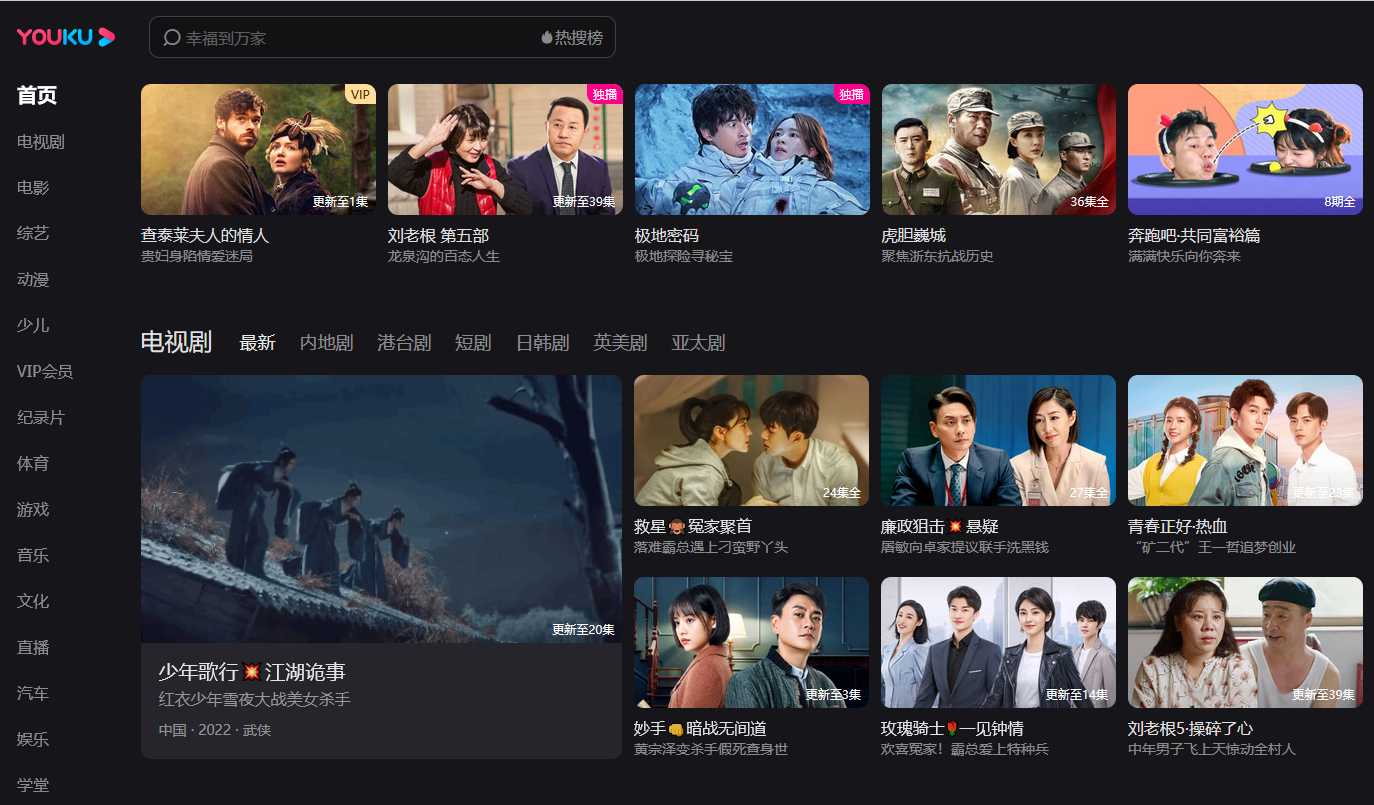
As one of the best YouTube substitutes in China, Youku offers a lot of the same features. It has channels similar to YouTube’s playlists that make it easy for users to follow or subscribe to video feeds from their favorite creators (or TV shows). Users also can upload content to the platform, comment on videos, subscribe to channels, and have your favorites show up in your feed. You can use Youku to watch video for free. But it offers VIP membership too which gives you access to premium content (TV series, movies, etc.), as well as not having to deal with ads., the monthly subscription price of VIP is 12 yuan.
2. Bilibili
Launched: 2009
Founders: Xu Yi
Headquarter: Shanghai, China
Founded in 2009, Bilibilican be considered a niche video platform focused on anime culture in China. However, although Bilibili has introduced new categories like gaming, advertising, and E-commerce, the most popular videos and the majority of their users are still related to Japanese anime. Bilibili is well known for its commenting feature called Danmu which allows viewers to post a comment at any time during the video. What makes this feature unique, and at times challenging for users, is that the comments will cover the video.But Danmu encourages social interaction and is highly valued by most Bilibili users.
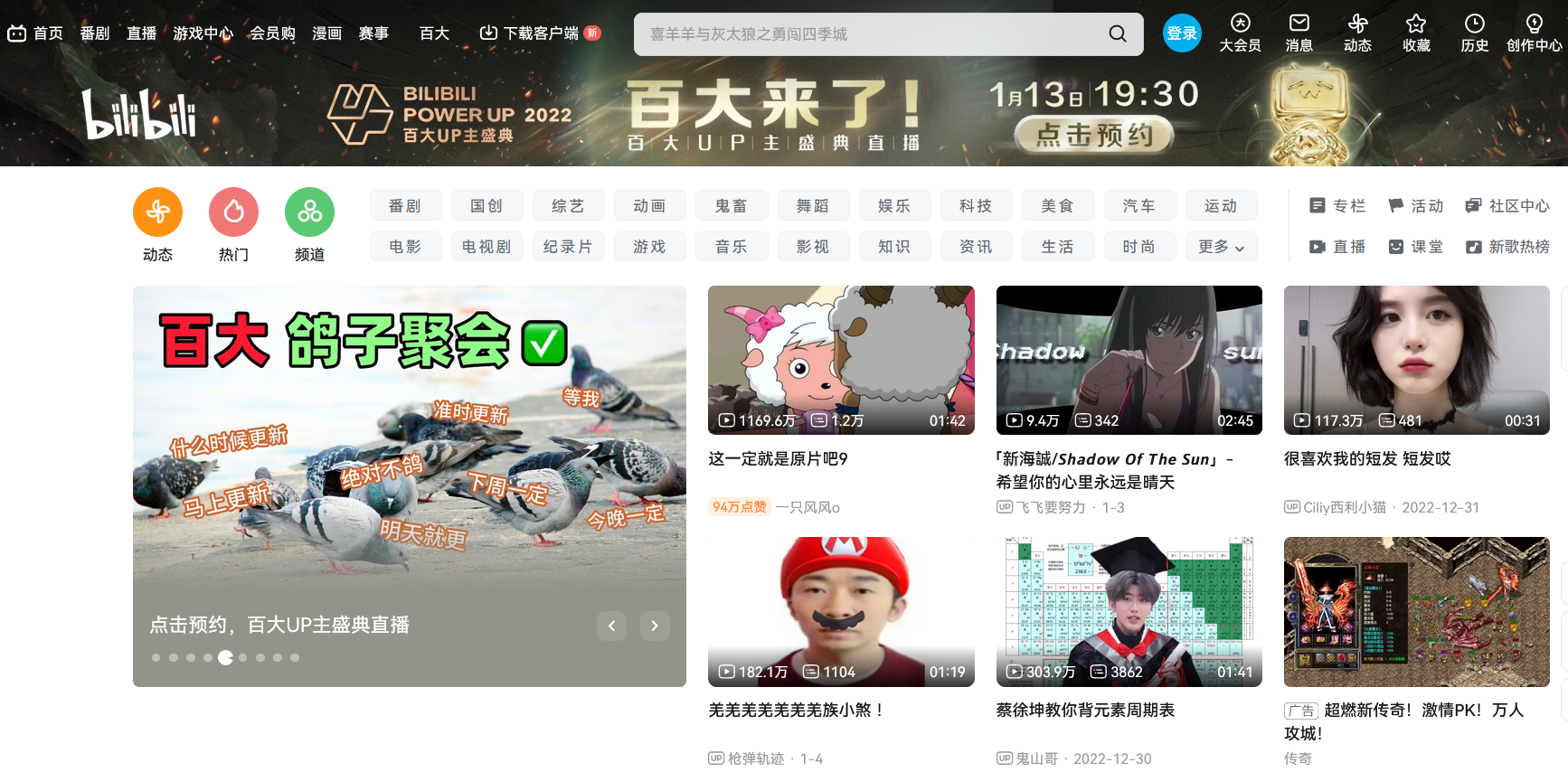
On Bilibili, users can upload their own videos or watch others’ videos. They can comment on those videos, and even become friends with other users who share their interests through their community forum. With over 293 million users posting videos every day, you’re bound to find something that interests you. Bilibili’s user interface looks similar to YouTube’s. It also has some neat features, such as the “hot search”, which allows you to quickly find trending and frequently searched videos.Most content on Bilibili is free for anonymous viewing, while some videos require a membership. The Premium membership subscription service cost around 25 Yuan per month. It is one of most popular alternatives to YouTube in China.
3. Douyin
Launched: 2016
Founders: Zhang Yiming
Headquarter: Beijing, China
Launched in September 2016, Douyin reached a 100 million user base in its first year of existence. It has been making some huge waves in 2018, most noticeable is the fact that it is one of the first Chinese social media platforms to obtain popularity abroad.The short-video app became the world's second most downloaded app overtaking Facebook and Messenger after Whatsapp in 2019. To date, the app has been downloaded more than 1 billion times. In comparison, TikTok was launched internationally in 2017 and has been downloaded more than 2.6 billion times to date.

With more than 550 million monthly active users (MAU), Douyin (抖音) is leading the short-video app universe in China by far. The favorite features of users in China are creating short videos (lip-synch, comedy, viral challenges) and live streaming. Although originally launched as a short-form video sharing platform, primarily for lipsyncing and dancing videos, Douyin has grown into a fully-fledged video service, with content available for all types of viewers. What make excited is that all users can use Douyin for free.
4. Xi Gua Video
Launched: 2016
Founders: ByteDance
Headquarter: Beijing, China
Xi Gua Video used to be Toutiao Video, a platform launched in 2016 as part of ByteDance’s news app Jinri Toutiao. Relaunching the platform as a separate app one year later, chief manager Zhang Nan said that Xi Gua was meant to become “China’s YouTube.” It have an impressive number of users —some 131 million monthly active users.Xigua video’s content covers everything just like YouTube. The categories include: Movie, TV, Game, Music, Livestream, Foods, Kids, Cars, Pets, Cartoons, Entertainment, Technology, Military, NBA, Culture, Education and China Village, etc.
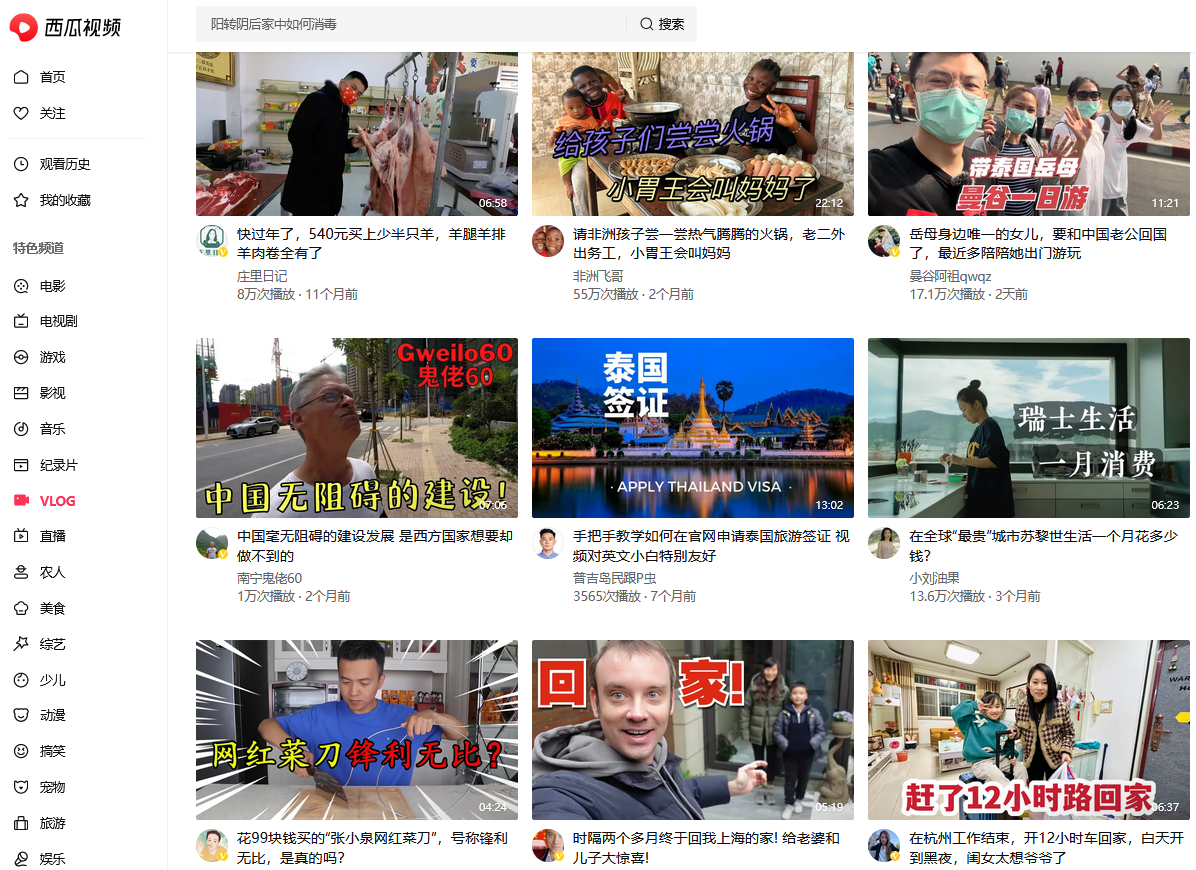
The site also has a news section with articles related to your interests, as well as social media features so you can share your favorite videos with friends on social media platforms like Weibo (China’s Twitter). Xigua is a good platform to promote brand awareness. Contrary to what we see on video sites like YouTube where the distinction between advertising content and professional content is increasingly difficult to detect, Xigua gives priority to content produced by professionals. The video creators can earn money on Xigua Video. It is encouraging users to upload 5-30 minutes long videos. Unlike Douyin mainly for short videos. It is worthing mentioned that Watch ing and uploading video on Xi Gua Video are free.
5. Kuaishou
Launched: 2011
Founders: Hua Su and Cheng Yixiao
Headquarter: Beijing, China
Kuaishou also known as Kwai overseas, is China’s second largest short video platform. Originally begun as a GIF making app in 2012, the app has grown to become a short video site with live streaming features as well. As Douyin’s biggest rival, Kuaishou takes a different approach by targeting the less developed areas across China.Even though the app itself is not as big as their competitors, it is still noteworthy that Kuaishou attracted multi-million dollar investments from big companies like Tencent, Baidu, and Alibaba. 
One of Kuaishou’s strongest points is that you can become an influencer on the platform, just like on YouTube. On Kuaishou, users can upload short videos and can even have live streaming sessions .The feature of adding filters and singing karaoke is very popular. Because Kuaishou KOLs are primarily made up of communities of authentic consumers and micro-KOLs, the content has a very strong authentic feel to it. For instance, a lot of the content features short videos of home cooking or playing pranks on friends. However, the platform also has representation in beauty, skincare, and more.
6. Tencent Video
Launched: 2011
Founders: Tencent
Headquarter: Shenzhen, China
Tencent Video is the video hosting and sharing site created by the Chinese internet giant Tencent. Being closely connected to WeChat, a social media behemoth, it has quickly grown to become one of the ten most downloaded apps. To date, it is the largest video site in China. It had over 200 million Daily Average Users and reached 100 million paid subscribers by the end of 2019.Tencent Video and Youtube have many similar features, like a library of HD videos, user profiles, playlists, video search and suggested content, and live streaming (including a feature called “Super Chat”). 
Users can download and watch a variety of content including TV shows, news, and movies. What's more, Tencent Video supports HD streaming and subtitles in multiple languages (English included), which means that even if you don’t speak Chinese fluently or at all, you’ll still be able to understand what’s going on during each video. In addition, just as with Youtube, Tencent Video is a fantastic platform to reach a broad and diverse audience. With its advertising features there are plenty of ways to reach your target audience through Tencent Video.Tencent Video are free to be viewed online, but VIP members can unlock more wonderful exclusive contents, the price is RMB 20 a month.
7. iQiyi
Launched: 2010
Founders: Baidu
Headquarter: Beijing, China
Another important video platform in China that also gets over 100 million active subscribed users and over 5.5 billion hours of content streams every month is iQiyi, launched by Chinese tech giant Baidu in September 2010. The first thing you’ll notice about iQiyi is that it looks a lot like Netflix. The homepage of the website features trending videos, new releases, and popular shows. But like on YouTube, there are also featured channels where you can find different types of content and you can browse by genre if you want more specific results.

Some video on iQiyi is free to watch. It also offers a premium membership that costs 15 Yuan per month which can unlock additional features like ad-free viewing and access to exclusive content such as live award ceremonies in China.
Saving tips:
If you want to join iQiyi VIP member , don't forget to Sign up at Extrabux, then you can enjoy up to 14% super cashback from Extrabux!
Such a high amount of cash back comes from Extrabux (What is Extrabux?), it also offers coupon codes and recent promotions, and brings together 10,000+ sites (US, China, UK, Japan, Australia , Germany, France, Italy, etc.).
Just sign up for an Extrabux account and earn up to 95% cash back every time you place an order via the relevant link. Sign-Up Bonus: Join for FREE & Earn $20 Welcome Bonus today! Then earn $5 Friend Referral Bonus!
8. SoHu Video
Launched: 1996
Founders: Charles Zhang and Edward Roberts
Headquarter: Beijing, China
Just like Tencent Video and iQiyi, SoHu Video also will make people think it’s not the Chinese version of Youtube but the Chinese version of Netflix. It offers a wide selection of videos, including music videos, news clips, and educational content. However, what you might not know is that SoHu Video actually is possessing many different personal channels and has been consistently encouraging people to become content creators, which is pretty similar to Youtube.
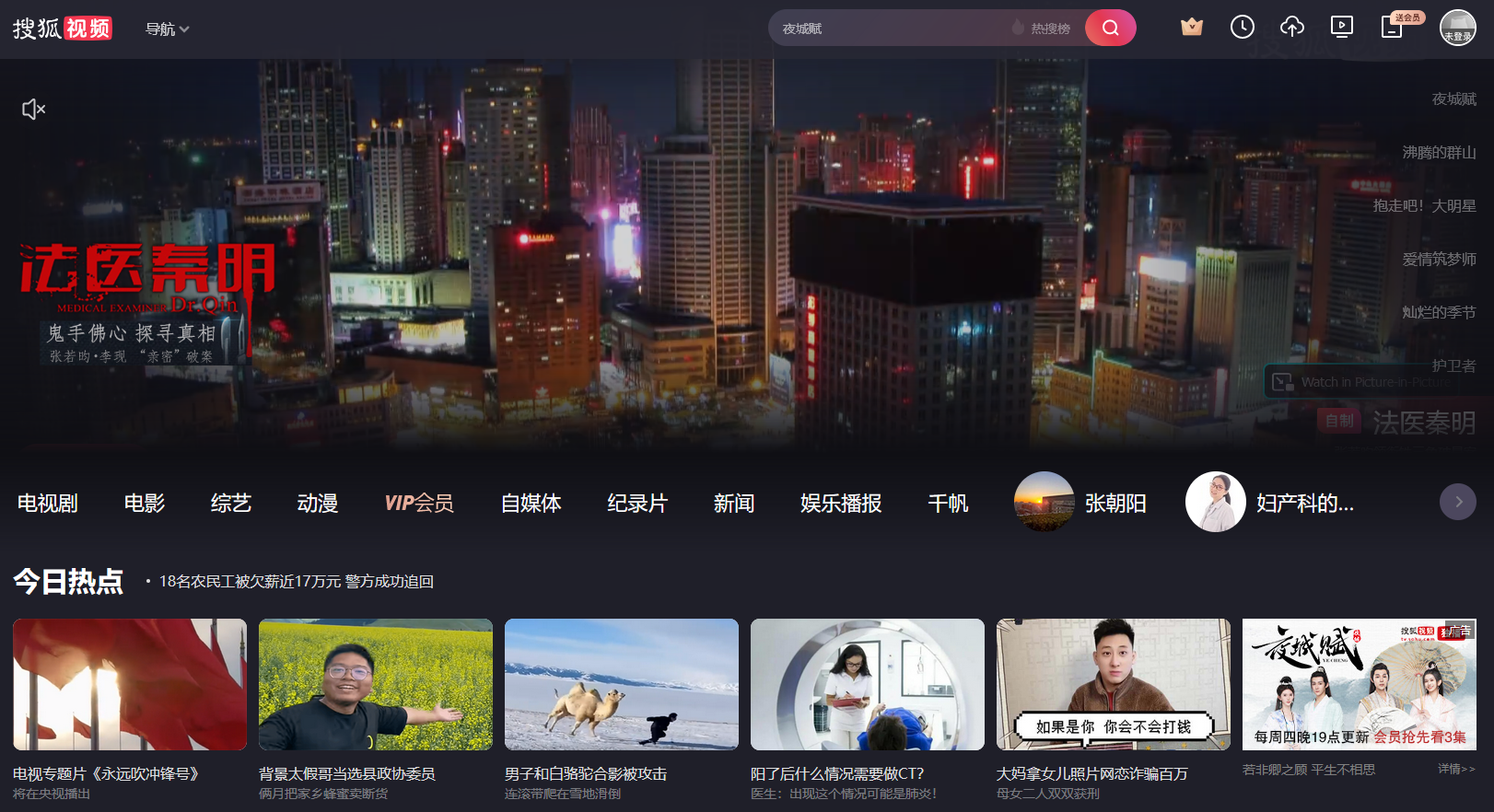
This platform offers both free and paid services. While the free service is ad-supported and has a smaller selection of content, the paid version cost 15 Yuan per month but has no ads, no restrictions on playback speed or resolution, and access to exclusive content.
9. 56 Video
Launched: 2005
Founders: Zhou Juan
Headquarter: Guangzhou, China
App Download: iOS & Android
56.com is one of the largest video sharing websites in China where users can upload, view, and share video clips.A fully owned subsidiary of Sohu, the company is headquartered in Tianhe District, Guangzhou, Guangdong. Under the furious competition between YOUKU and TUDOU, 56 were always keeping low and playing their role in the industry. 56 Video platform, at the time, was using the theme color of YouTube, which reminded a lot of YouTube, and people loved to upload videos to 56 Video platform because of its friendly user experience, creating their own channels.

56.com has everything you love about YouTube: short videos and long-form content from creators, live streaming. You can find any kind of video here —music, news, funny clips, even how-to videos— and interact with the content in an easy way. You can even create playlists of your favorite videos! And unlike many other Chinese video sites, it’s completely free —you can just sign up with your WeChat account or your phone number.
10. KU6
Launched: 2006
Founders: Fang Du
Headquarter: Beijing, China
App Download: iOS & Android
Ku6 is an online video company, was established in 2006 and now is based in Beijing, China. It was targeting to become the Chinese version of YouTube, offering Chinese users a broad range of contents including news, movies, television dramas, music videos, entertainment sports and user-generated content (UGC).Now most of the videos posted on the Ku6 website are short-form videos submitted via user uploads.
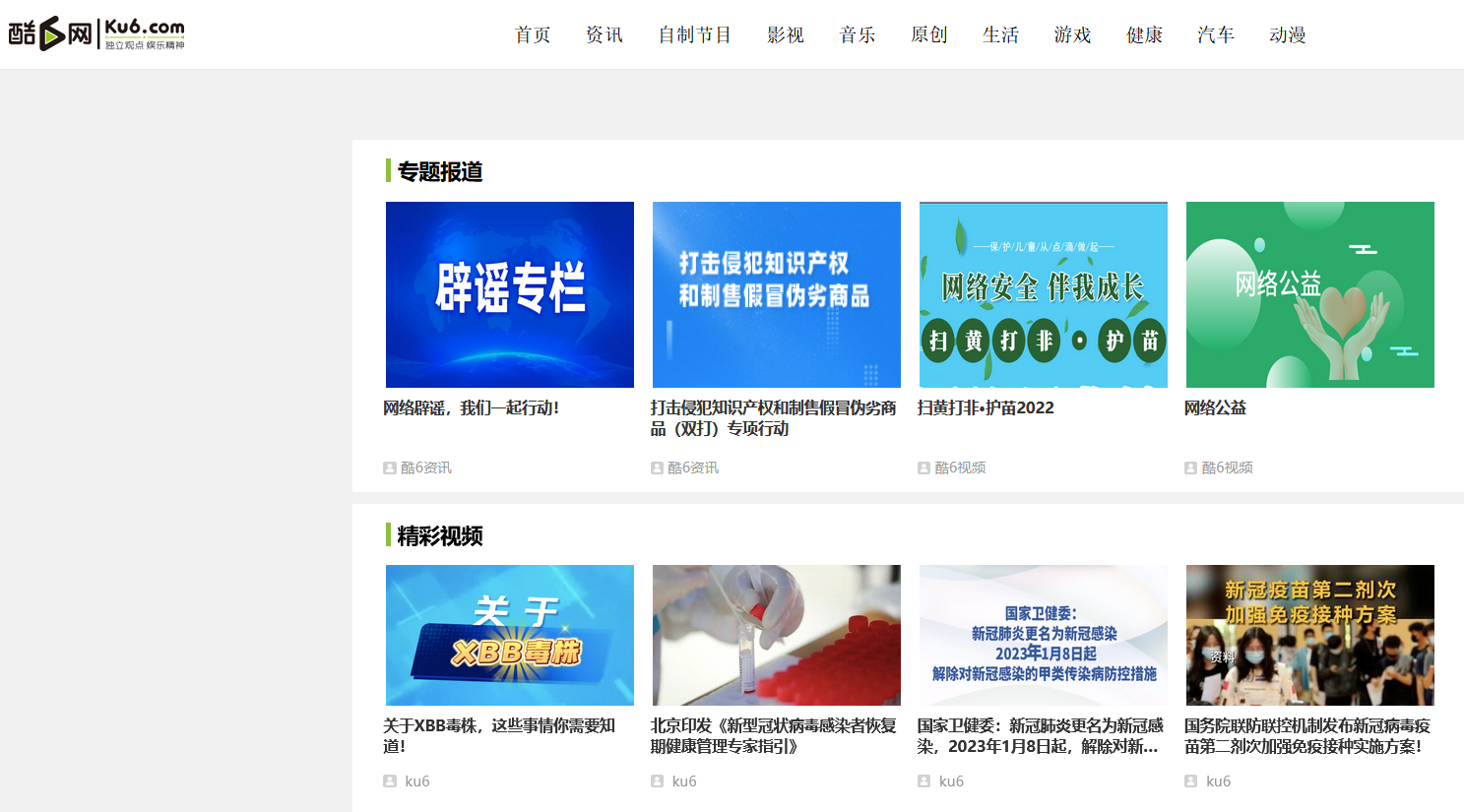
One great feature of KU6 is its recommendation system: like on YouTube, when you give a video a thumbs-up or thumbs-down, the platform will use those ratings to suggest other videos based on your preferences and interests.The platform also provides some customized services, such as user-navigating channels for video sharing and commenting tools; search history for frequent visitors; chatting box alongside videos.Ku6 doesn’t require registration or log-in and there are no ads on the site.

Extrabux is an international cashback shopping site, offering up to 30% cashback from 10,000+ Stores!
Squarespace, SkinStore, MATCHESFASHION, The Wall Street Journal, NordVPN, Visible, Armani Exchange, Sam's Club, PUMA, AliExpress, Card Cash, NET-A-PORTER, Udacity, Udemy, Selfridges, LOOKFANTASTIC, Vimeo, Coach Outlet, lululemon, PrettyLittleThing, Booking.com, Ripley's Aquarium, iHerb, Groupon, etc.
Join to get $20 welcome bonus now! (How does Welcome Bonus work?)
Recommendation
-

Is Turkish Airlines Good for International Flights?
-

10 Best & Stylish Winter Coats for Women on NET-A-PORTER in 2025
-

Top & Best 12 Sneaker Apps/Websites for Raffles, Releases & Restocks in 2025
-

7 Best Gift Card Exchange Sites - Buy, Sell and Trade Discount Gift Card Safely and Instanly!
-

Top 9 Professional Skincare Brands for Licensed Estheticians 2025










